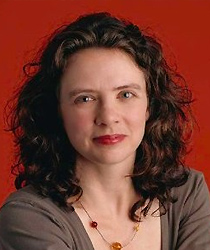Pathways: Creating Your Unique Career Path
WiE is hosting this one-hour event entitled " Pathways: Creating Your Unique Career Path" to expose members to the multifaceted pathways available for carving out a fulfilling career within science, engineering and technology. The event will consist of a panel of 2 speakers with work experience within and outside of academia. At the end of the presentations from our two speakers, there will be a 10-15 minute Q&A session.
If you have questions about your career, are looking for inspiration, or just curious on how others have navigated their career trajectory, then “Pathways: Creating Your Unique Career Path” would be beneficial for you. The virtual panel will be held on August 18th from 6-7pm and features two speakers: Dr. Pamela Abshire of University of Maryland, College Park and Dr. Jennifer Colonell of HHMI Janelia Research .
For more information on the speakers, see the biographies below in the speaker section.
Date and Time
Location
Hosts
Registration
-
 Add Event to Calendar
Add Event to Calendar
Speakers
Dr. Pamela Abshire
Biography:
Pamela Abshire is Professor of Electrical and Computer Engineering and the Institute for Systems Research at the University of Maryland, College Park. She received the BS in Physics from the California Institute of Technology in 1992, and the MS and PhD in Electrical and Computer Engineering from Johns Hopkins University in 1997 and 2002. In between CalTech and JHU, she worked for the biomedical device company Medtronic. She is internationally known for her work in low power mixed-signal integrated circuits (IC), adaptive ICs and IC sensors, and CMOS biosensors. Her research focuses on better understanding and exploiting the tradeoffs between performance and resources in natural and engineered systems, including hybrid devices incorporating CMOS, MEMS, optoelectronics, microfluidics, and biological components. Her honors include an NSF CAREER award (2003), elevation to IEEE Fellow (2018) for contributions to CMOS biosensors, and recognition as a Distinguished Scholar-Teacher at the University of Maryland (2021). She has authored 150+ publications and 3 patents. She served on the Emerging Technologies and Research Advisory Committee for the U.S. Department of Commerce (2008-2018), on the Board of Governors for the IEEE Circuits and Systems Society (2013-2018 & 2024-2026), the IEEE Fellow Committee (2019-2021 & 2025-2026), as General Co-Chair for the 2017 IEEE International Symposium on Circuits and Systems, on the Microsystems Exploratory Council for the DARPA Microsystem Technology Office, and as General Co-Chair for the 2023 IEEE International Midwest Symposium on Circuits and Systems.
Dr. Jennifer Colonell
Biography:
Jennifer Colonell has a background of mixed disciplines. After graduate training in classic surface science—studying the dynamics of chemical reactions on metal surfaces in ultra-high vacuum— she wanted to apply her skills to something “more useful.” Her first useful activity was research in silicon processing as an MTS at Bell Labs. After a few years of making silicon devices, she was lured away by the challenges and potential medical relevance of high-throughput biology. In that vein, she worked at Praelux (and later Amersham Biosciences) on the development of a high-speed confocal microscope for imaging hundreds of thousands of cultured cell samples; at GlaxoSmithKline on miniaturized enzymatic assays; and at Helicos Biosciences on single-molecule DNA sequencing. She is currently at HHMI's Janelia Research Campus. At JRC, she has built a series of microscopes for light-level connectomics in fly and mouse brains. A few years ago, she moved from microscopy to high density electrophysiology, joining the Neuropixels team. Her research in electrophysiology has focused on data analysis, but her work has also involved a lot of system-level development and support to make the technology accessible to many labs. A common theme of my career has been the importance of building super-reliable tools—from optics, electronics and mechanics to software—that are also so convenient for the experimenter that taking good data is easy


